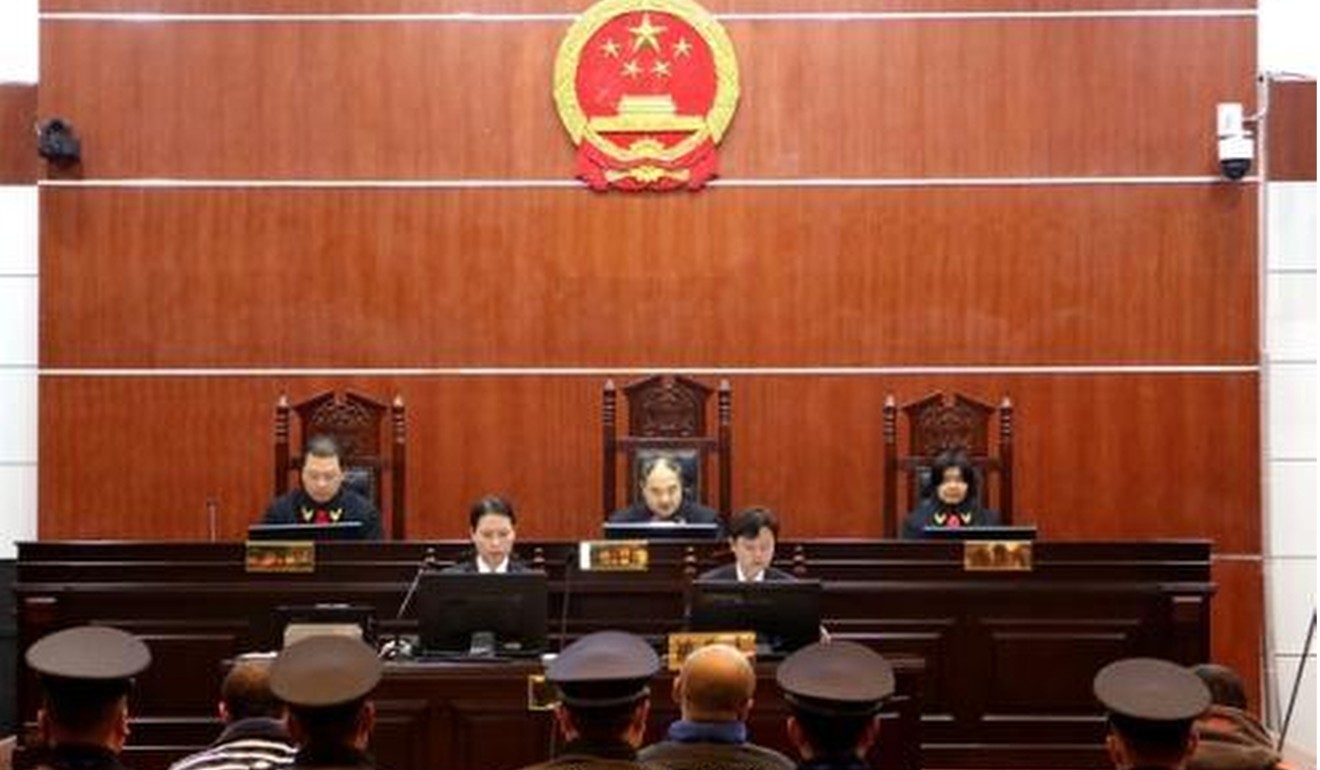
Founder of US$14.5 billion Chinese pyramid scheme Shanxinhui jailed for 17 years
- Zhang Tianming was also fined 100 million yuan, while nine of his staff were given prison sentences for their part in the scam
- They had claimed to be raising funds for forest conservation and poverty alleviation work
The founder of a 100 billion yuan (US$14.5 billion) pyramid scheme that claimed to be a charity and whose arrest prompted investors to take to the streets has been jailed for 17 years by a Chinese court.
Zhang Tianming and nine of his employees were sentenced by the Shuangpai People’s Court in Hunan province on Friday over their get-rich-quick scheme Shanxinhui, or Kindness Exchange.
The scheme – which said it was raising funds for charity work – earned them profits of 2.2 billion yuan, according to news website Thepaper.cn.
Along with his prison sentence, Zhang was fined 100 million yuan for leading a multi-level marketing scheme and inciting a mob to create a public disturbance, the court statement said. His nine employees were given jail terms of between 1½ and 10 years for their part in the scam.

By the time Zhang and his staff were arrested in July last year, Shanxinhui had amassed nearly six million members who had contributed more than 100 billion yuan to its operations. Nearly half of those members have not received the payout they were promised.
The pyramid scheme was set up in 2013 and registered as a business involved in “cultural activities” in the southern city of Shenzhen, Thepaper.cn reported.
But it did not begin recruiting members until May 2016, according to state-run news agency Xinhua. On its website, Shanxinhui claimed it was an equity investment group promoting causes like forest conservation and poverty alleviation.
It promised members a 10 to 30 per cent return on their investment depending on how many people they “helped” by transferring money directly to another member they did not know. Their “commissions” increased by 2 to 6 per cent if they signed up more people for the scheme, according to Xinhua. Zhang admitted to police that the only way to keep Shanxinhui going was to keep recruiting more people who would add fresh funds.
Among its claims about charity work, Shanxinhui said it had planted a 1.32 sq km forest, but a police investigation found the trees were only saplings planted on a much smaller area, according to a separate Xinhua report.
A housing development it claimed to have built in Hainan Island, meanwhile, did not exist.
Shanxinhui also had several shell companies registered under its name, the news agency reported.
Pyramid schemes have been illegal in China since 2005, but they have proliferated in recent years with promises of high returns.
In 2016, police investigated 2,826 pyramid scheme cases – up 19.1 per cent from the previous year, according to the Ministry of Public Security. Between 2005 and 2015, the authorities confiscated 990 million yuan from 21,904 pyramid schemes.
Following Ezubao’s collapse, President Xi Jinping listed financial risk management as one of China’s priorities for “economic work”, while the ruling Communist Party’s political and legal affairs committee pledged to start a nationwide campaign against illegal online finance deals.

